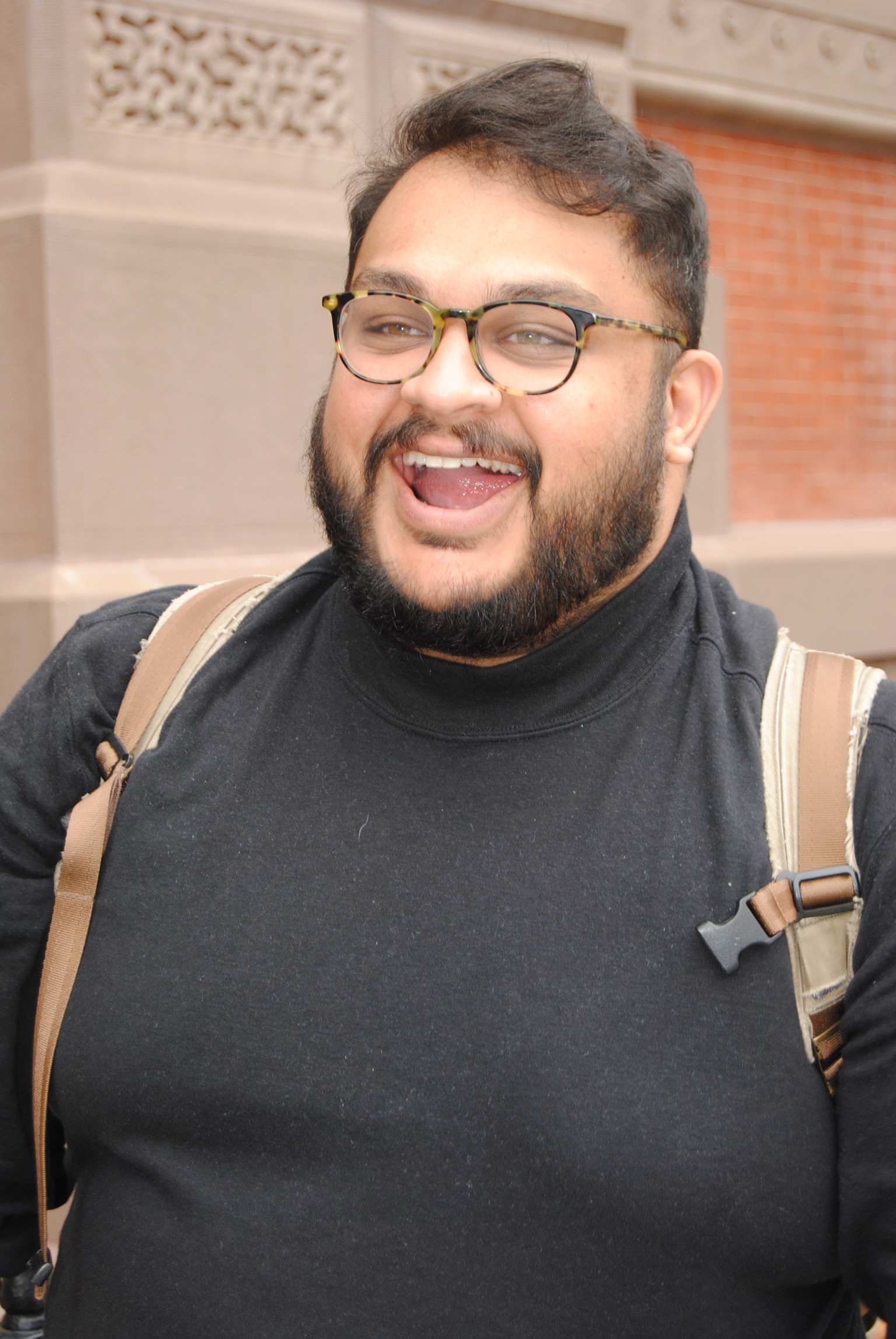ISSN: 1941-4137
POETRY THAT ENACTS THE ARTISTIC AND CREATIVE PURITY OF GLASS
POETRY THAT ENACTS THE ARTISTIC AND CREATIVE PURITY OF GLASS

Inam Kang is a Pakistani-born poet, student, and curator. His work can be found or is forthcoming in Winter Tangerine, Tinderbox Poetry Journal, The Margins, and other journals and anthologies. He splits his time working and living between Cleveland and Southeastern Michigan.
Also by Inam Kang:
pulp
detailed history of the affair between my father’s head and my mother’s shoulder
marathon avoidance
I guess my mother’s rude and it’s hereditary
but language isn’t nature or nurture
unless it’s both. so i watch the edge of my smoky mouth
like you watch the rim of a manhole cover.
and i know it, we’re stink-marrow hidden
from the sun so grubby crusts fall out
of our faces and we don’t just curl them
into a smile. everything’s abrasive but meet me
on the other side. if it’s a long day
and my mother responds, haan or haanji,
or even kya, i still read it love. the syllables
strict and every white friend hears it and wonders
if i’m in trouble so they’re no longer allowed in my house.
when my mother could have settled her scarf
into evasion, she spoke me affirmation clear. her
tongue was decked in orange flowers, families
dressed in red dancing into a banquet. so i say
sacred instrument,
but again, everything translates as severity if
you don’t know the music. i take the wicked away.
leave my mother to the comfort of her sisters
across the ocean. so on the phone, it’s only shout.
all the right things are exhausted by the tongue.
[kiss the ground in the gao where i was born]
[tell our father i’m sorry for leaving]
[i wish we were children and holding hands in Rawalpindi]
[smell jasmine for me]
[smell jasmine for me]
[smell jasmine for me again]
[we were one bush and now we’re two]
[vine yourself across the big water]
[be a part of me again please]
my mother can’t stomach saying any of it so
there’s just an increase in volume, pushing the phone
harder against her ear, shouting salaam louder
with each sister’s name. so out rolls one for guddi
& one for tahira
& one for wajiha
& one for sahira
& one for asra.
and when she calls me, blood is
blood and i hear her well. here’s a shout
even on the same soil and, again, they
siren into homeland, call it security. so i assure them
and assure them, but a monster is a monster
when the mother tongue is evil. so i spare
my mother her voice and never let them hear her
sermon me into love-shuffle again.
tomorrow, she sends me a million good letters.
she writes the english painful and, of course,
critiques comes barreling from the same mouths.
they finger wag, they grammar, but still hold
my name in their mouths like a
stone for revolt. so when it’s spit, i hold it
in my hand. i transfer it from one hand
to the other. this time, i let them know she made me,
so if every move she makes is violence,
then let me be a war.
let me give her an accolade every morning.
and when we learn that every intonation
is correct, we spin our language into
the ceiling of the room. we never pay attention
to a bright eye again. we love one another
in the wrong tone and the right country is discovered
in this house, where all my coats soak up
the smell of food. and every time i pass an old friend,
too slick with surveillance to know me still,
i make sure to meet them by the neck
just long enough
for my garment to make them
wince.
This poem sort of came about in a whirlwind of confrontation between me today and what my younger self has forgiven. I considered the ways I forgave the aggressive and bigoted lens through which the white folx I was surrounded by in high school read my mother’s behavior and conversation. I know the language my parents speak as incredibly tender, especially in the context of their interactions with the family they left behind in Pakistan- the silences, the sharp syllables, everything they say really expands and becomes such a rich dialogue of the unsaid. This idea that anything my mother says could be interpreted as rigid is something I’ve constantly had to explain and now that I refuse to explain it, I want the world to feel the responsibility they have to let my mother speak the way she speaks, to let her love me in the tongue she knows and has inherited from people who refused to die. And apart from that, I want to hold myself accountable in that weight, in my own silences that painted her speaking and her quiet as some sort of heavy hand, when they were anything but.
Glass: A Journal of Poetry is published monthly by Glass Poetry Press.
All contents © the author.
All contents © the author.





